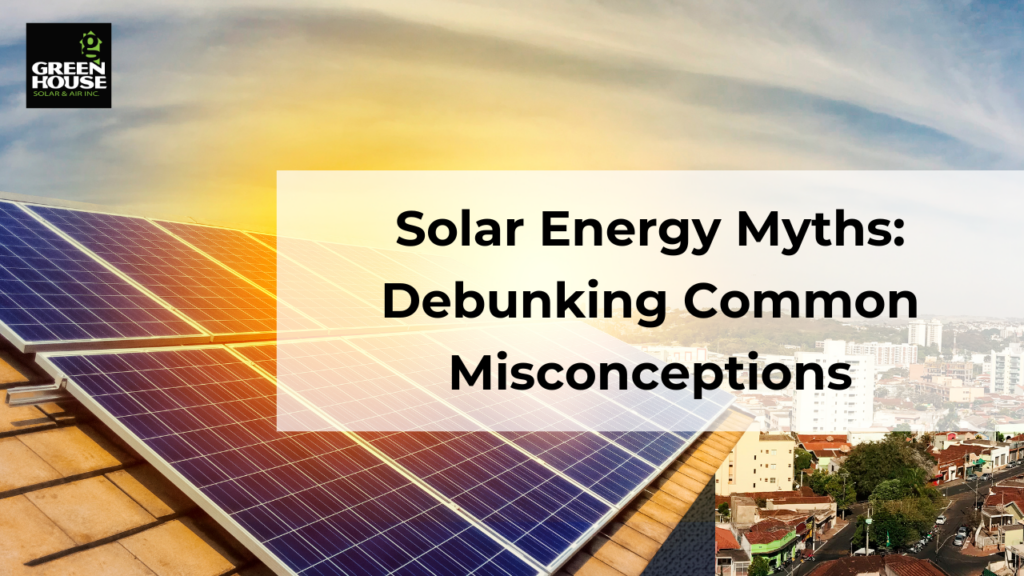
Solar energy has emerged as a promising and eco-friendly solution to our ever-growing energy needs. Yet, despite its many benefits, several misconceptions persist, preventing some from fully embracing this renewable energy source. In this article, we aim to debunk these common solar energy myths and set the record straight about the true potential of solar power.
Myth 1: Solar Panels Are Only Effective in Sunny Climates
One of the most persistent myths about solar power is that it only works in regions with abundant sunshine. While solar panels do perform optimally in sunny locations, they can still generate electricity in cloudy or partially sunny conditions. Modern solar technology is designed to capture sunlight, even on overcast days. In fact, some of the world’s leading solar energy producers, like Germany, have climates with limited sunshine.
Myth 2: Solar Panels Are Too Expensive
While solar panel installation can have upfront costs, it’s essential to consider the long-term financial benefits. Over time, solar panels can significantly reduce or eliminate your electricity bills, leading to substantial savings. Additionally, government incentives, tax credits, and financing options make solar more affordable than ever. The return on investment (ROI) for solar panels is generally quite attractive, and many homeowners recover their initial costs within a few years.
Myth 3: Solar Panels Require Constant Maintenance
Solar panels are known for their low maintenance requirements. They have no moving parts, which means there’s less to wear out or break. Routine maintenance typically involves occasional cleaning to remove dust and debris and inspecting the system for any issues. Manufacturers often provide warranties that cover solar panels for 20-25 years, demonstrating their durability and reliability.
Myth 4: Solar Panels Harm the Environment
This myth likely stems from misconceptions about the production and disposal of solar panels. While manufacturing solar panels does require energy and materials, their environmental impact is far less than that of fossil fuel-based electricity generation. Over the life cycle of a solar panel, it produces many times more energy than was used in its production. Additionally, solar panels can be recycled at the end of their life, reducing waste and resource consumption.
Myth 5: Solar Panels Are Ugly and Decrease Property Value
The aesthetics of solar panels have improved significantly over the years. Many solar companies offer sleek and visually appealing designs that can enhance the look of your home. As for property value, numerous studies have shown that solar panels can increase the resale value of a home. Potential buyers are often attracted to homes with lower energy bills and the environmental benefits of solar power.
Myth 6: Solar Energy Is Unreliable
Solar energy systems can be quite reliable when designed and installed correctly. To address concerns about reliability during cloudy days or nighttime, many solar setups incorporate energy storage solutions like batteries. These batteries store excess energy generated during sunny periods for use when the sun isn’t shining, providing a consistent power supply.
Conclusion
Solar energy is a clean, renewable, and increasingly affordable source of power, but persistent myths can mislead potential adopters. It’s crucial to base your decisions on accurate information and dispel these misconceptions. Solar panels are a viable and eco-friendly solution that can benefit both homeowners and the environment. By debunking these common solar energy myths, we hope to encourage more people to consider harnessing the power of the sun for a brighter and greener future.

